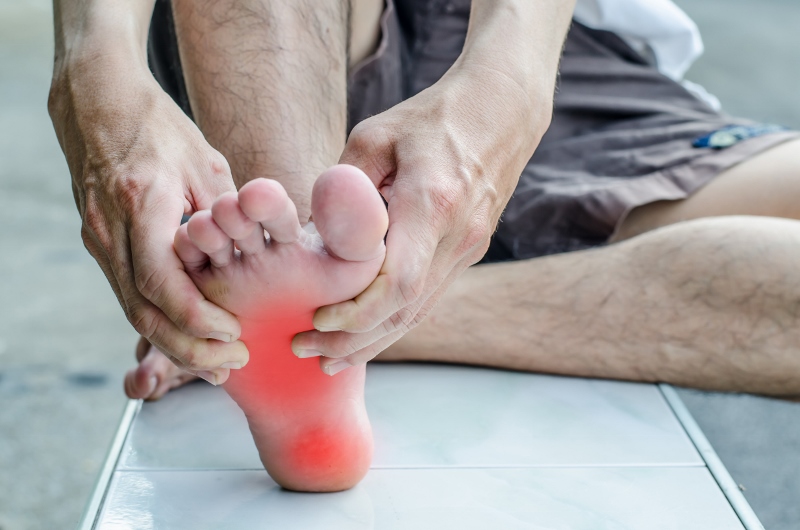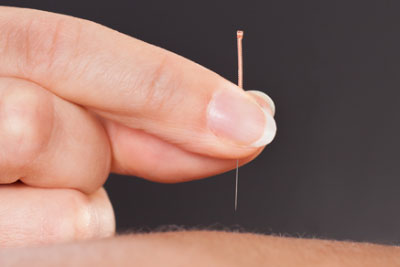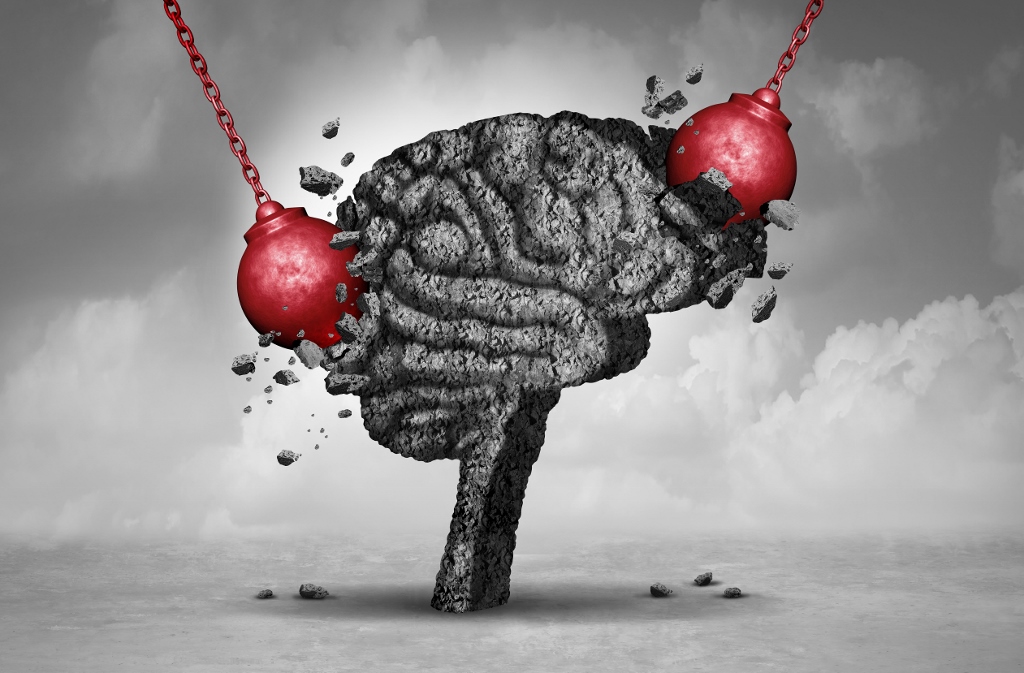Plantar fasciitis is a painful inflammation of the tissue on the bottom of your foot between the ball of your foot and the heel. It is called the plantar fascia and it is a thick , fibrous band of connective tissue. When placed under excessive stress, the plantar fascia stretches too far and tears, resulting in inflammation. This stress can build up gradually, or it may be the result of a sudden occurence.
The most common causes include:
- Weakend arches from either flat feet (pronation) or hight aches (supination)
- A sudden increase in activity, or change in workouts
- Increased weight gain, either from obesity or pregnancy
- Poorly fitting footwear, ie flip flops or high heels
SYMPTOMS
The main symptom of plantar fasciitis is heel pain when you walk, particularly first thing in the morning. This is because the fascia is held in a shortened postion all night when you sleep, and when you put your full weight down on the foot first thing in the morning, the tissue is under a sudden increased stretch and causes the fascia to be extremely painful. This will cause you to limp for the first few steps, until the fascia slowly stretches out again. A cycle then begins , of pain every morning or after sitting for long periods; a sudden increase of pain with weight bearing, and then fading as you walk or gently stretching the fascia out. This painful cycle can last for months or even years , because the fascia begins to get thicker, and thicker with scar tissue.
TREATMENT
For mild cases of plantar fasciitis it may be enough to stretch more frequently, build more rests into your routine , and ensure you have proper footwear.
In more severe cases, you may need to seek the advise of a health professional. A few tips may help:
- Never go barefoot in your home, find a comfortable pair of shoes with extra cushion
- Avoid worn-out shoes and if running, try to run on a soft surface
- Consider switching your workouts to non-weightbearing activies like swimming, or cycling
- Ice when painful, and heat before your stretches to increase the elasticity of the tissues
If your symptoms persist your health care provider may suggest physiotherapy. The goals of physiotherapy are to help reduce the inflammation through various treatment modalities, stretch out the tight plantar fascia and then strengthen the lower leg muscles to help stabilize the ankle and heel. Sometimes taping the arch is beneficial, a change in footwear, and the use of orthotics. In particularly chronic cases, the use of shockwave therapy has been hugely successful. Cortisone and surgery are rarely considered.






